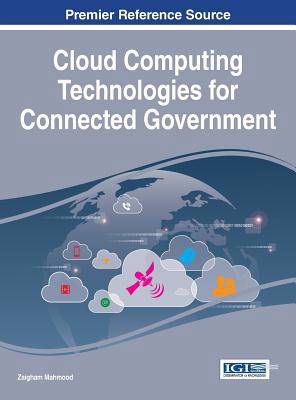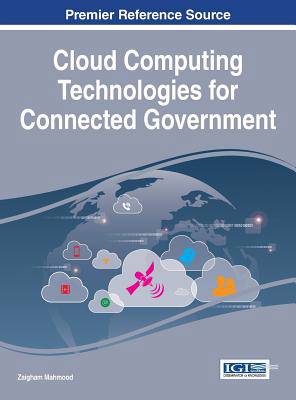
- Afhalen na 1 uur in een winkel met voorraad
- Gratis thuislevering in België vanaf € 30
- Ruim aanbod met 7 miljoen producten
- Afhalen na 1 uur in een winkel met voorraad
- Gratis thuislevering in België vanaf € 30
- Ruim aanbod met 7 miljoen producten
Zoeken
Cloud Computing Technologies for Connected Government
€ 272,45
+ 544 punten
Omschrijving
In the developed world, there is an increasing trend towards the use of e-government to further involve citizens in the maintenance of their country. This is not only an improved way to promote existing methods of citizen engagement such as voting or taxation; it also makes information more accessible and increases opportunities for average citizens to make their voices heard. Cloud Computing Technologies for Connected Government explores the latest research on the use of e-government for enhancing the effectiveness and transparency of public institutions. Featuring coverage on cloud-related frameworks and strategies, barriers to e-government development and practice, and case studies revealing the best guidelines for efficient technology use, this timely publication is indispensable for students, educators, information system specialists, technology experts, and anyone involved in public administration or the management of government departments. This book highlights chapters on a broad scope of topics including, but not limited to, citizen empowerment, collaborative public service, communication through social media, cost benefits of the Cloud, electronic voting systems, identity management, legal issues, and security and privacy for e-government users.
Specificaties
Betrokkenen
- Uitgeverij:
Inhoud
- Aantal bladzijden:
- 442
- Taal:
- Engels
- Reeks:
Eigenschappen
- Productcode (EAN):
- 9781466686298
- Verschijningsdatum:
- 31/08/2015
- Uitvoering:
- Hardcover
- Formaat:
- Genaaid
- Afmetingen:
- 216 mm x 279 mm
- Gewicht:
- 1306 g

Alleen bij Standaard Boekhandel
+ 544 punten op je klantenkaart van Standaard Boekhandel
Beoordelingen
We publiceren alleen reviews die voldoen aan de voorwaarden voor reviews. Bekijk onze voorwaarden voor reviews.










